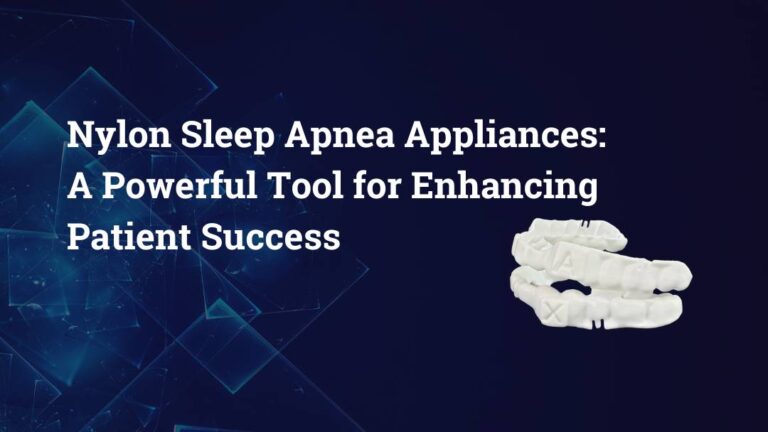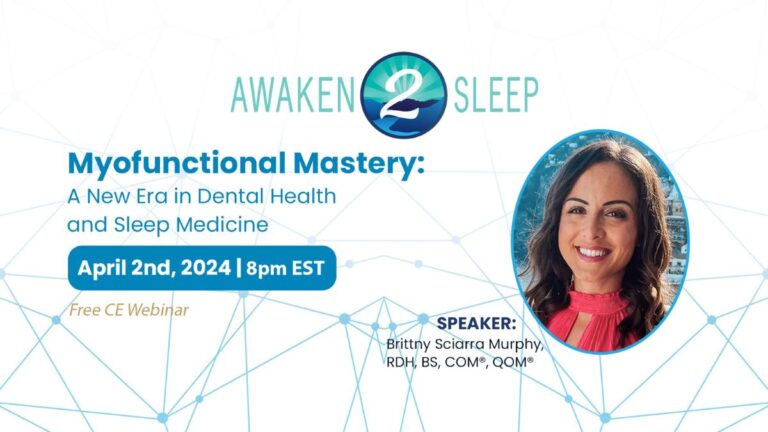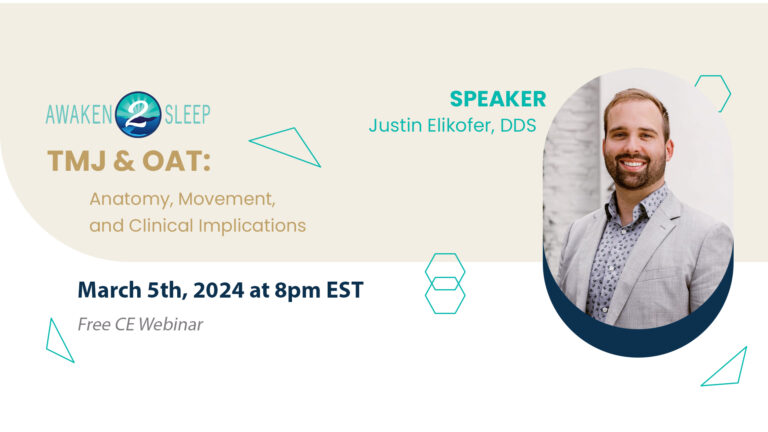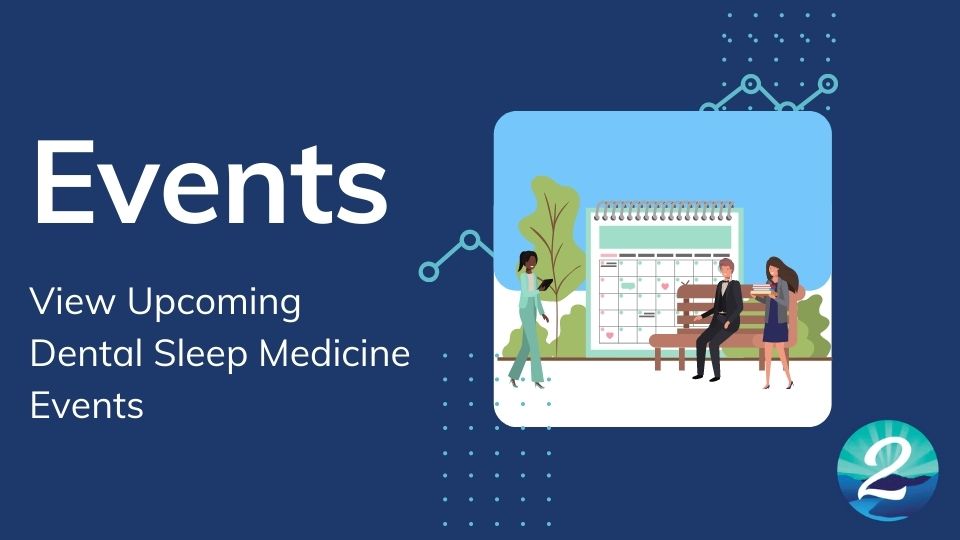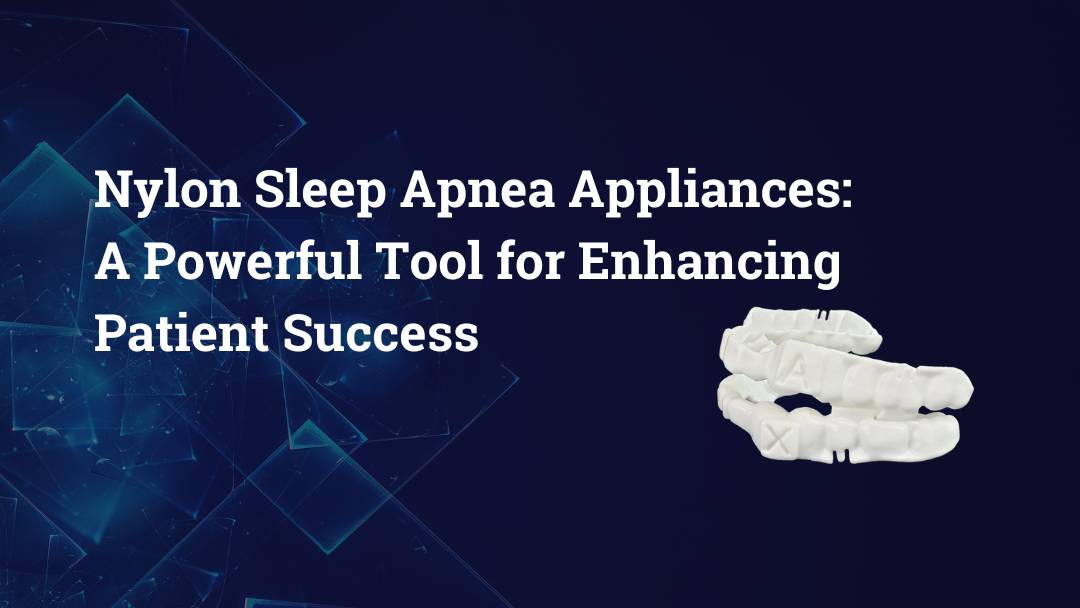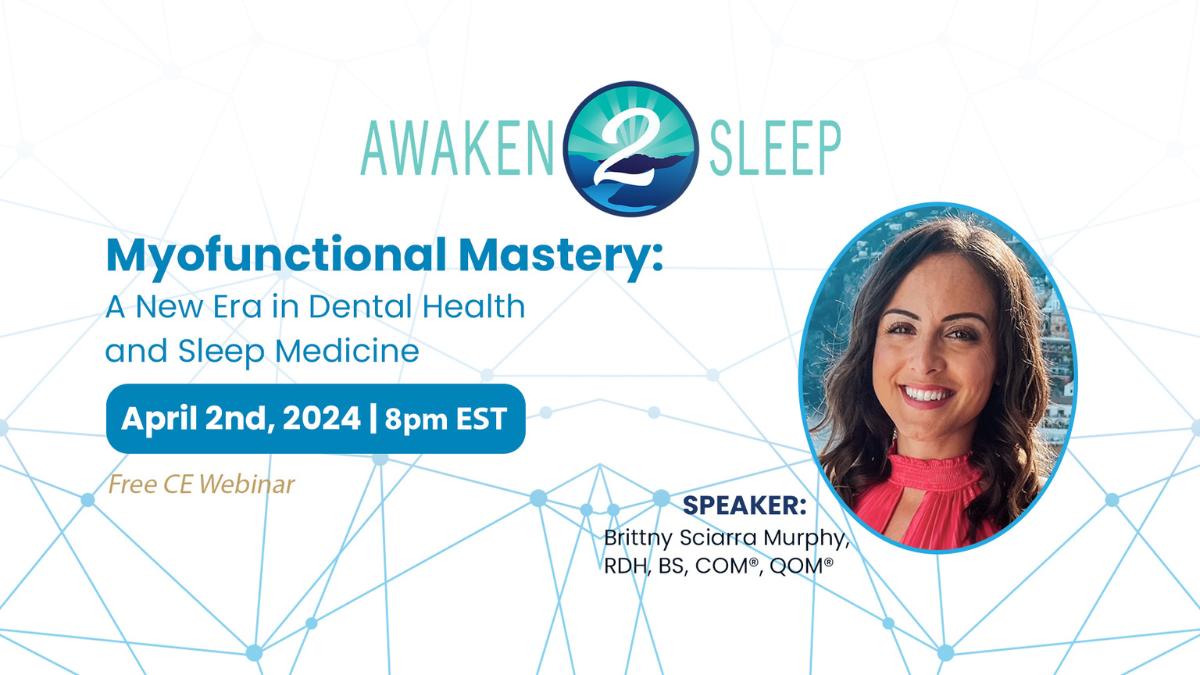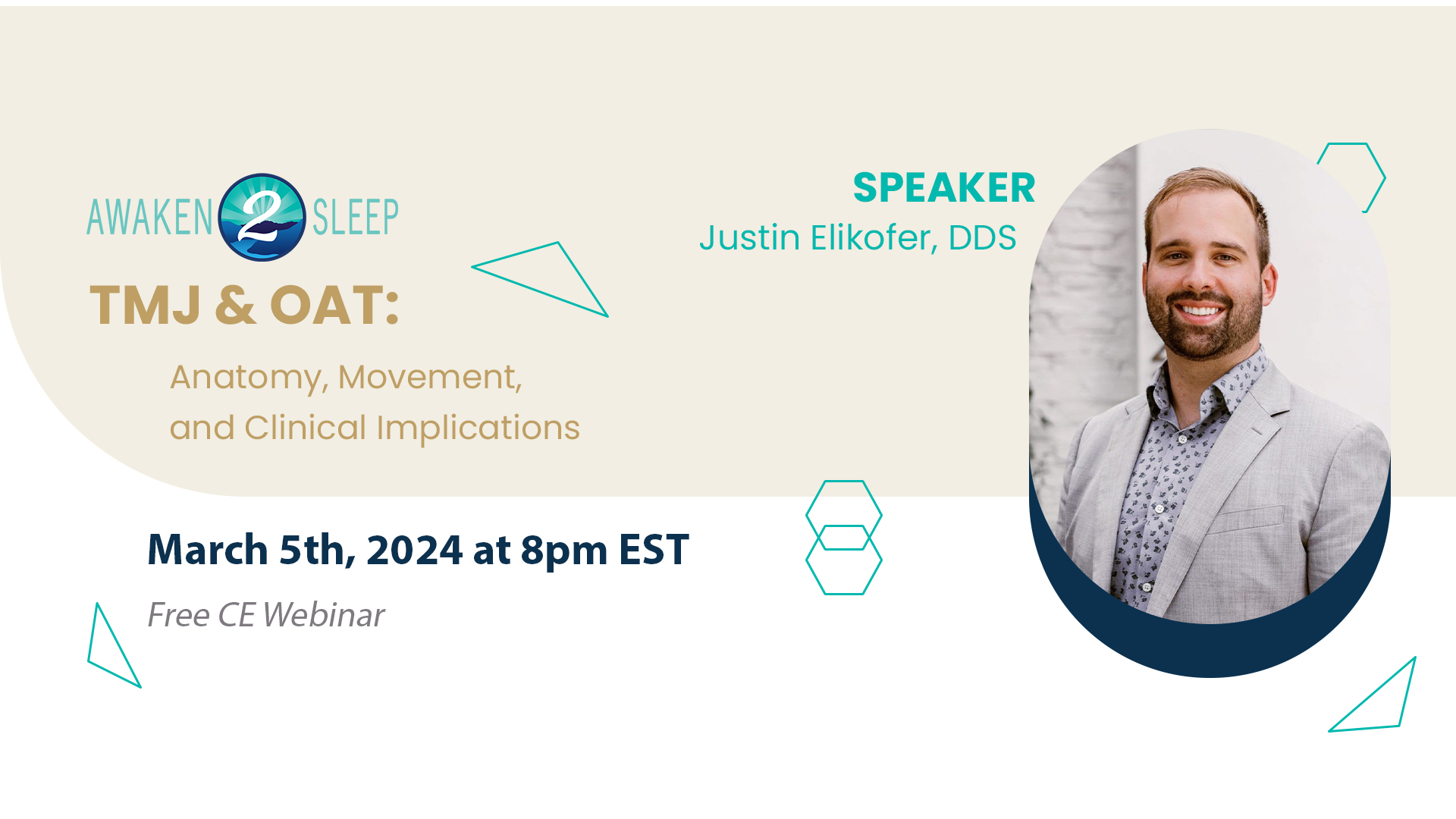By Chad Wooters
Why should a dentist be involved in identifying or treating someone with obstructive sleep apnea?
This is only part of the question. The reality is that dentists are busy doctors! On their own, they limit the potential that their team can have in the dental sleep medicine arena. Dental teams are uniquely positioned to have an impact in communities all over the world and specifically in America.
If you are someone who is asking these questions, check out these 10 reasons that dental teams should be involved in identifying and treating patients with obstructive sleep apnea.
1. Millions of Americans are suffering unknowingly from this condition.
Several studies are showing that it is estimated that nearly 25% of the adult population has an undiagnosed sleep disorder. These people are literally choking in their sleep several times an hour. This impacts many areas of their lives and it may even be impacting areas of your life!
2. You Will Change Someone’s Life.
Patients suffering from sleep apnea may not even know they have it, until you show them the facts and connect with them. People don’t care what you know until they know that you care. Imagine if you helped just one person wake up with energy and excitement in the morning instead of waking up with a headache and frustration.
Imagine if you could help even just one person lose a few pounds because they are sleeping better, or even help them lower their blood pressure medication!
3. You will change their bed partner’s life.
Nobody wants to sleep next to a snorer! In fact, there is a comedic comorbidity called SRS (Sore Rib Syndrome). Maybe you know someone or many people who suffer from this condition. This “condition” can be having a huge impact on someone’s marriage or everyday life. If there was peace and quiet for both people when they went to sleep, it may just make them happier together, and in some cases, even save the relationship!
4. You Could Be Saving Lives.
A patient with untreated sleep apnea could have 7-10 years taken off of their life. There have been several studies indicating that when we sleep less or get less quality sleep, we impact every area of our health including our brain, digestive system, and cardiovascular system. Putting extra stress on these systems can shorten our life-span, robbing us of precious years with those we love.¹
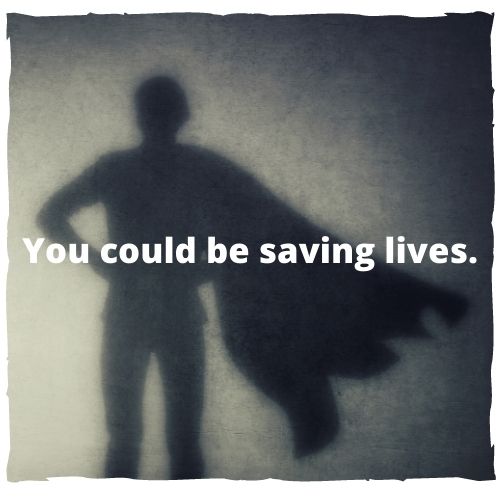
5. You Can Identify Serious Comorbidities Early On.
Insufficient sleep directly coincides with several other diseases, mostly due to the stress it plays on so many areas of life. You can help someone navigate their obesity, high-blood pressure, morning headaches, diabetes, or many other comorbidities that can be partly managed by getting proper sleep.
Not to mention, quality sleep decreases the likelihood of developing chronic conditions such as Alzheimer’s and cancer. Sleep is a crucial part of our lives and is one of the ways that our body heals from and fights off diseases.
6. Your dental practice will stand out among others.
There are not enough dentists in the world treating sleep apnea. In your area, there may be one or two dental sleep medicine offices, but that means that all of you could be busy for years treating only a fraction of the patients in your area.
If you are looking for a way to market yourself as “different” or “unique”, dental sleep medicine may be one of the tools in your bag that you can offer. Create a comprehensive approach to health starting from the mouth out!
7. Dental teams have a unique role in screening for sleep apnea.
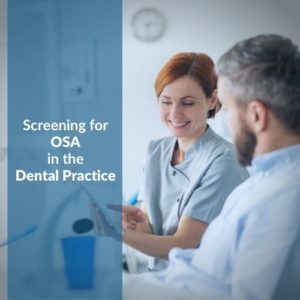
Dental offices are unique in the healthcare industry in part because they see patients the most out of any health care provider (unless a patient is seeing a doctor for a particular condition or treatment). The fact that you see most patients twice a year and sometimes more is an opportunity in that you have a relationship with them that other health care providers may not.
The other side of this is that obstructive sleep apnea presents itself in many comorbidities that are observable in the mouth! You can identify patients who are considered at risk, and (in most states) offer a solution or a path to help them get diagnosed!
8. As a dentist, you have a unique opportunity
in helping patients receive effective treatment.
It is common knowledge that one treatment for sleep apnea is a CPAP, but what a lot of patients don’t know is that Oral Appliance Therapy or Mandibular Advancement Devices are often a viable alternative for those patients with severe obstructive sleep apnea who are not able or willing to comply with CPAP, and they can be used as a first-line treatment for patients with mild to moderate obstructive sleep apnea.
It is important to note that only a dentist has the license required to order a MAD or OAT device. It is solely within their scope of practice to take impressions, order, and deliver a medical-grade device in the oral cavity.
Dentists cannot prescribe it and should be working under the direction and guidance of a Board-Certified Sleep Physician or in collaboration with a patient’s PCP to obtain that direction or prescription, but once the patient is able to move forward, only a dentist can take that next step and offer that treatment.
9. Dental Sleep Medicine is an opportunity to empower your team.
DSM is a team driven procedure; most of the work is done by a dental team and the dentist is involved in only a few pieces of the puzzle. This an opportunity for a few team members to become producers in the practice where they may not have been before.
It is also an opportunity to help the team understand and visibly see how their jobs directly translate into life change for patients. The impact that a dental team has on a patient’s life is transformative especially when it comes to the issue of sleep.
10. It’s another source of revenue for your practice.
Patients are first, and money is second, but your business still needs to be profitable. In DSM, you can create a system that allows you to expand the profits of your business. This allows you to generate more jobs and be more generous with your patients. This is the last reason dentists should be involved in dental sleep medicine because, although money is important, there are many more important reasons to get involved.
If you want to read about the potential (or Return on Investment) of dental sleep medicine, click the button below!
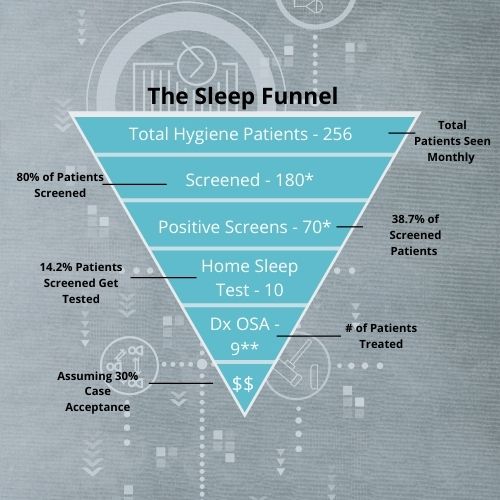
These are only 10 of the many reasons that your dentist or dental team should be involved in identifying and treating sleep apnea. You never know the impact and importance of having this simple conversation with patients.
If you need more reasons, information, or custom direction on how to get started, you should talk to a sleep coach. Click the button below to schedule a complimentary results call with a coach to determine the next three steps you should take on your journey to implementing dental sleep medicine!
Sources
“This Sleep Disorder Can Take Years Off Your Life.” Sharecare, www.sharecare.com/health/sleep-apnea/article/sleep-disorder-years-off-life


